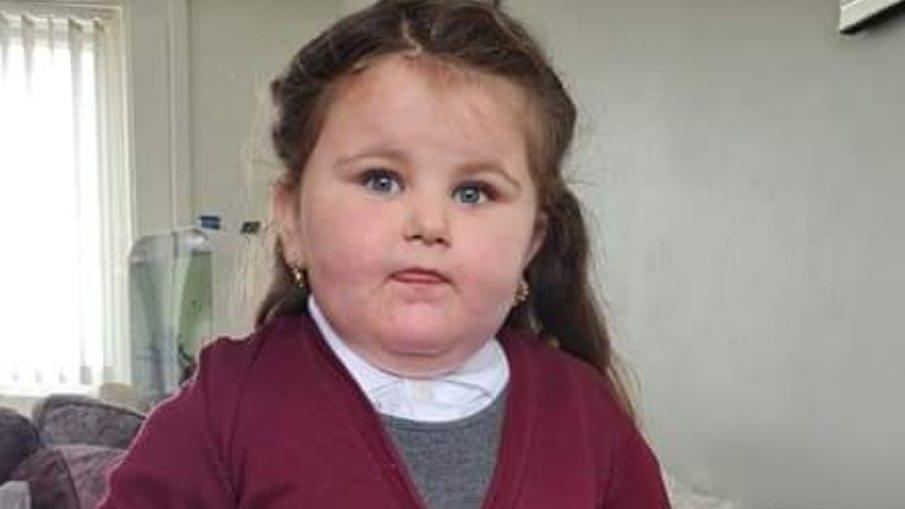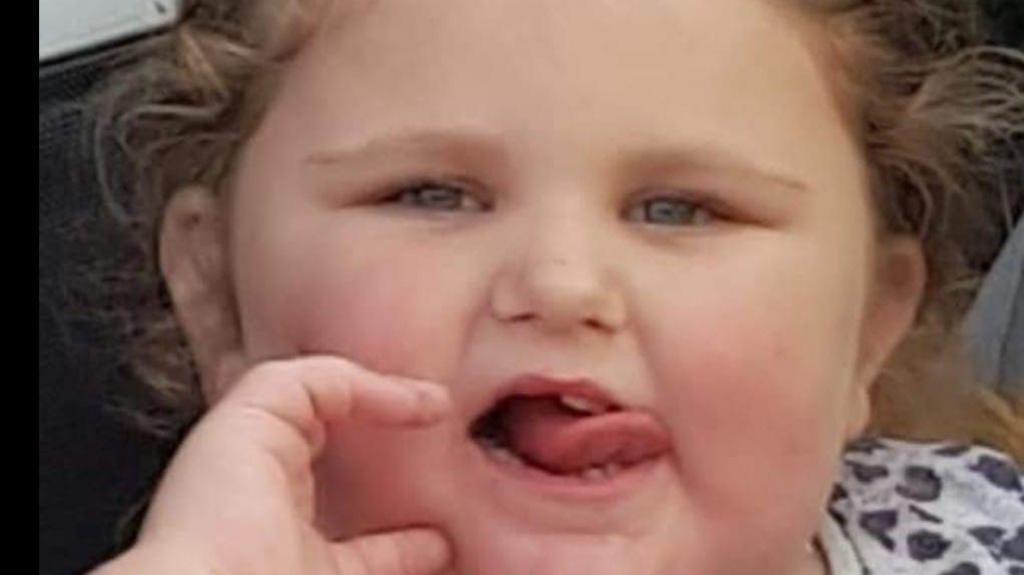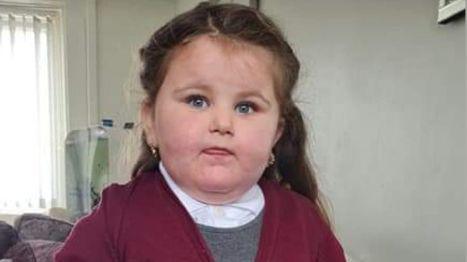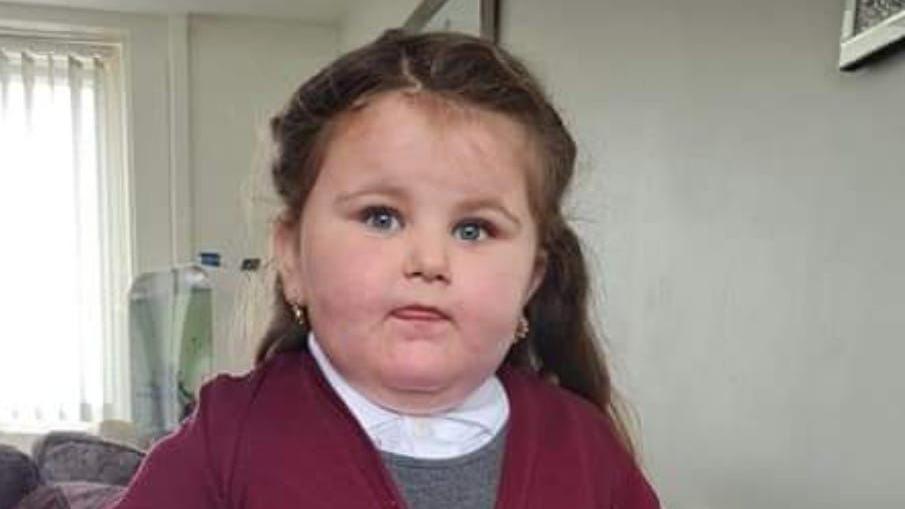Hospital care may have saved girl's life - inquest

Makenna-Rose Thakcray was diagnosed with scarlet fever, caused by the bacterial infection Strep A, on 9 December 2022
- Published
An expert in child medicine told a coroner's court that a four-year-old girl who died shortly after a fruitless wait in A&E may have survived if she had been seen by doctors.
Makenna-Rose Thackray from Rothwell in West Yorkshire, died two days after being taken to Pinderfields Hospital in Wakefield when she coughed up blood.
The child's mother took her home after a six-hour wait and said staff had not encouraged her to stay. A nurse who had been on shift that night said they had encouraged them to remain in the children's A&E.
Paediatrician Dr Simon Nadel told the inquest if Makenna-Rose had been admitted and treated she would have "probably avoided death".
Makenna-Rose was diagnosed with scarlet fever, caused by the bacterial infection Strep A, on 9 December 2022.
There was a Strep A outbreak across the UK in late 2022, with pharmacists across the country reporting a widespread shortage of penicillin.
She died on 20 December 2022 after stopping breathing and going into cardiac arrest, less than 48 hours after being taken home from Pinderfields.
The family had seen a GP the following day.
On the third day of the inquest in Wakefield, Dr Nadel, a consultant in paediatric intensive care, said if Strep A had entered the bloodstream, lungs or the joints, it was a problem.
"That is a very serious condition because you can't usually deal with Strep A that has invaded into the blood without treating it with antibiotics," he said.

Makenna-Rose died one month short of her fifth birthday
A post-mortem examination showed Makenna-Rose had invasive Strep A, as well as the flu.
Dr Nadel said: "If she was sent to paediatricians, she would have had a full set of observations recorded.
"I think it is likely she would have had done blood tests, as well as possibly a chest X-Ray because of her respiratory condition for signs of infection."
Dr Nadel added that if the tests showed "any signs of abnormality", Makenna-Rose would have been given intravenous antibiotics.
On whether sending Makenna-Rose to a paediatrician would have saved her life, Dr Nadel said it was "difficult to say".
However, he added that "24 hours of antibiotics and other supported care, if she needed, would have probably avoided death".
Dr Nadel said: "If she was in hospital at the time of her collapse and stopped breathing and had a cardiac arrest, that possibly could have avoided her death."
However, Dr Nadel also said they did not know "exactly what the cause" of the cardiac arrest was.
'Missed opportunities'
Dr Sarah Robertshaw, consultant in emergency medicine at the Mid Yorkshire Hospitals NHS Trust agreed there were some "missed opportunities" regarding Makenna-Rose's care.
However, she added: "If she remained in the emergency department she would have been seen by a clinician."
On Thurdsay, the coroner will sum up evidence given before the jury before it is expected to begin deliberations.
Follow BBC Yorkshire on Facebook, external, X (formerly known as Twitter), external and Instagram, external. Send your story ideas to yorkslincs.news@bbc.co.uk, external
- Published8 July 2024

- Published9 July 2024
